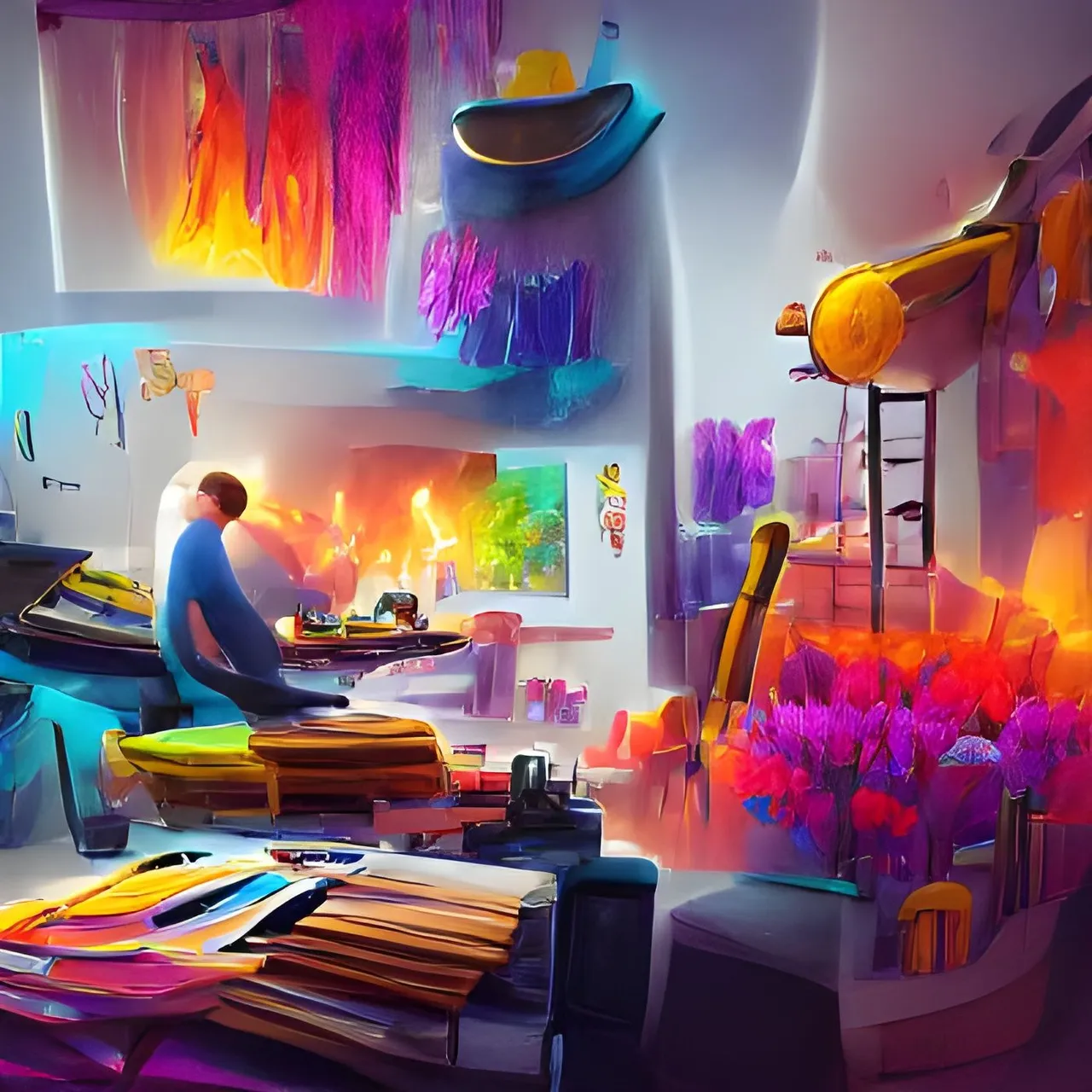
Although I did engineering, I was never really very good, but decent with numbers. It is a bit funny to think that I make a living on calculations. My history with math is love and hate. It mostly involved insisting on useless calculus or advanced math in real life. I've found myself in the realization that it wasn't futile at all, especially I am currently into data science, AI, and even crypto.
So maybe what I felt before was due to not able to comprehend beyond the boring formulas. I did appreciate numbers more as I knew how to use them to my advantage. Numbers, too, make up a language that I am still comprehending and trying to master. For some, they found numbers holding secrets that only a select few can read.
We live in a world now that seems to be made up of strings of codes and algorithms. I think sooner or later that we arse into a virtual multiverse. The internet was a miracle. If something occurs, often enough, we can see patterns that we can cluster, and maybe by dipping into a growing pool of information, we can regress the data and predict the future. Isn't that a miracle or next-to magic?
One afternoon, my nephew went to our house to use the communal PC, where I did sync it with my google account. My nephew was really into games. His searches are about ROS and Mobile Legend, aside from his assignment on geometry. It made me targeted by ads for steam and in-game credits. At first, I was astonished since I was not into games lately due to some works. I did have these heavy ads listing on games when I was actively playing games.
Some people will find it weird and magical that what they thought of has appeared in ads. Like my mom who funs searching for herbal, hearing mass online or listening to some 90s songs. Sometimes, my mom asked me why all posts on her Facebook were about herbal medicine supplements or those late 90s songs. It proves how algorithms work with our search history. Sometimes, it will come to annoy us.

We are more than just the results of our Google searches. That one-time dull afternoon searches can hunt us for weeks of ads. Who we follow or what posts we share can dictate what we see in our socials and ads. The internet can profile us with our search and browsing history. It approximates the things we would like, attempting to influence us towards it. It is as if it dictates a version of us into existence. I often remember my sister's rant about why she keeps having an ad offering the blandest, pastiest white man. It is not just to my sister, but some Filipina friends.
The scariest or craziest aspect is that these recommendations are sometimes not so far off. They may be astoundingly, frighteningly precise at times. Internet algorithms appear to acquire information that is as if it was a close friend or family. The profiling can be insanely accurate based on our interests, with the subtlety of our personality, ethics, and belief system left out. Sure, we may learn a lot about someone by what movie they watch or what places they went to hang out and dine. The crazy part, how much is a lot?
Is it possible for these numbers and computations to make a valid assumption? I guess it can. After tinkering with AI for a substantial time, I can say that it can learn patterns that can't we easily recognize from a slim sample of data, but how much more if it holds millions or billions of information? Put enough pertinent information about ourselves into a computer, and it minds as if it knows who we are.
However, I think it is not in its final form. The internet can interpret and suggest what we want to browse to, but It can't still predict our behaviors as long as it is not on what we have before. Thinking of that, it is much creepier or crazier when that time comes. Right? We understood how it brings progress and how it will be an issue of humanity.

Beginning with the gradual discovery of many and progressively proclaiming ourselves set apart from the rest of the world. But what exactly is a person? If we can't answer it, how much more is the AI that interprets what we give to it. Were we ever able to find out? If we can figure it out, is it true that becoming virtual makes us more or less what we are? Maybe, it turns out to be the metaverse with artificial consciousness. Who knows?
When I saw The Matrix back in grade school, I loved the slow scenes on how they can stray away from the bullet. I had no idea I'd be seeing a less sped-up version of life as we'd come to know it. What they thought was their reality was intercepted and viewed via billions of codes. Our technological advancement in the 80s gave birth to what appeared to be far-fetched fears. But it turns out our lives are better, and with AI, we can see more and more virtual integrations.
Would we become hooked to something and then become stuck inside a utopian multiverse, scarcely distinguishing truth from fiction, unable to leave the virtual worlds we created for ourselves? Is there even a distinction any longer? People are now unable to perceive a person beyond the text on the screen. Have we allowed these algorithms to define who we are? I can say yes. Whether we like it or not, it becomes part of who we are.
Do we know who we will become in the end? If virtual metaverse, driven by the algorithm linking our browsing and behavior, comes true, do we change as they change because they have become extensions of ourselves as people? Will we like the people we're becoming?
As I reflect on the information I've given the internet about myself, I'm becoming increasingly concerned about what appears to be a stranger. Perhaps we've changed over the years, but it is increasingly like the person the internet is conjuring up like someone I don't recognize. We are now acquainted with someone we don't much know and like.
We should remember that things aren't always as they appear on the internet. Some of us do not share as openly now, and as a result, they are no longer a personal concern. I guess some of us learned that convenience and technology come with a price. It's not precisely deception. I believe it's self-preservation. Perhaps in five years, our persuasion will have changed. Above all, we should be taking advantage of the numbers and data rather than taking advantage of ourselves.
Featured Illustrations:
All Featured artwork or digital illustration is created by the author.
Metaverse:
Doug Martin, The Technology of the Metaverse, It’s Not Just VR
Internet, Google Searches and Browsing History:
